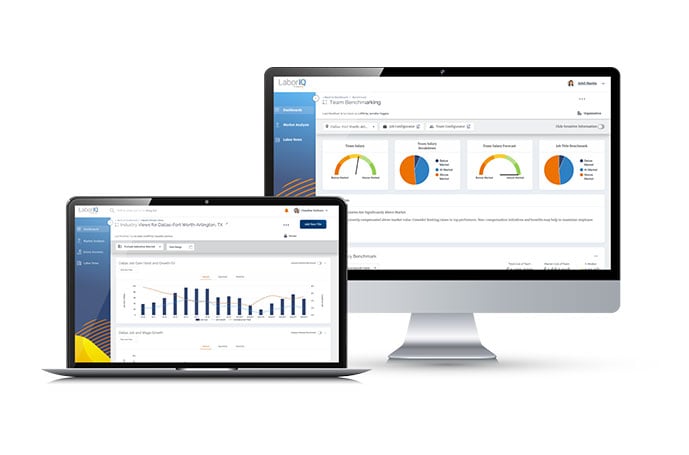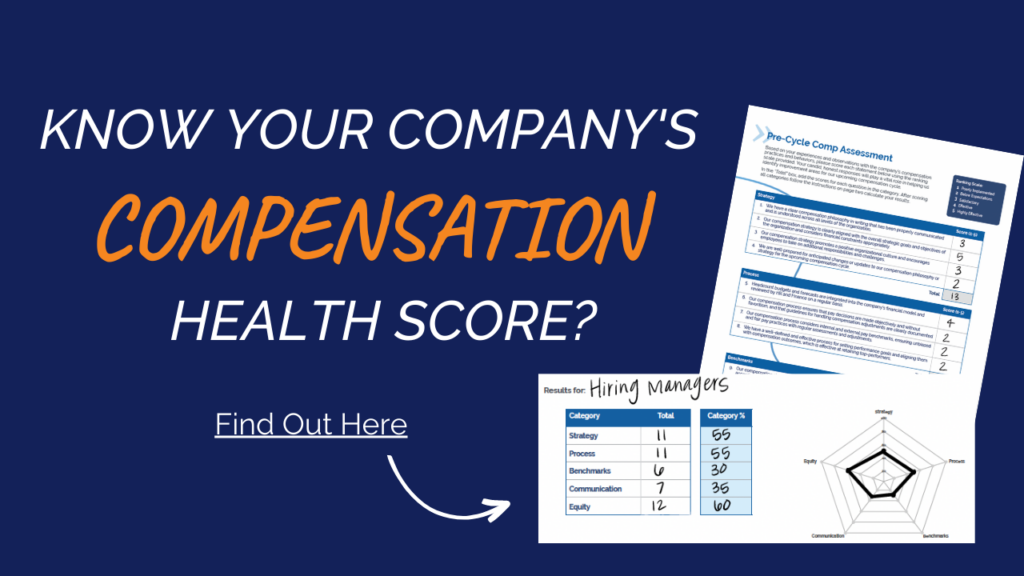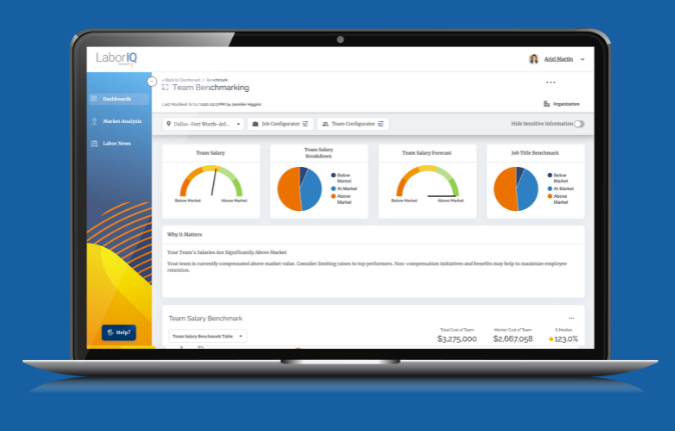Compensation benchmarking, also known as salary benchmarking, compares a company’s internal salaries to external market averages.
This involves evaluating job roles, more specifically, the responsibilities and skills involved, the employee’s experience, the cost of their replacement, and comparing them to similar positions in other companies.
There are many salary benchmarking best practices and different ways to obtain data for accurate comparison. So let’s take a closer look…

Why Salary Benchmarking Matters
Salary benchmarking is vital for confirming that you’re offering competitive salaries. Needless to say, companies wanting to attract top talent and retain their staff need to ensure their compensation is attractive – especially in light of other companies with similar, open roles. As a result, competitive compensation is the cornerstone of any strong employer brand.
How to Implement an Effective Benchmarking System
There are several steps to building a productive benchmarking system:
- Design a roadmap. HR leaders should list their short- and long-term goals and decide on a timeline, budget and resources required for accurate benchmarking.
- Define the competition. Benchmarking will shine a light on how your compensation compares to your competition. The goal may be to outmatch your competitors to attract top talent. If that’s the case, you need to carefully define your competitors. This involves businesses in your industry as well as other companies that require workers with similar skills. These organizations may attract your prospective candidates and current employees.
- Ensure every role has a detailed description. Job descriptions are vital to any effective benchmarking strategy as they enable HR leaders to better compare job roles. As such, an effective job description should clearly entail all the skills, responsibilities, experience required, and authority involved with the position.
- Consider how you’ll collect salary data. The quality of salary data you collect will impact the accuracy of your compensation benchmarks. You need to consider your industry, geographical location, the size of your organization, skill sets, experience levels, etc. You should also aim to benchmark the vast majority of positions your business employs to ensure you’re offering competitive salaries across the board.
Collecting Data for Salary Benchmarking
To establish an accurate salary benchmarking strategy, there are many options for collecting compensation data. These include:
- Peer data: This is employer-reported salary data obtained through a shared network.
- Crowdsourced compensation data: Identify a database where employees self-report salaries in your industry.
- Survey publishers: Several HR companies publish annual salary survey data.
- Compensation consultants: Some businesses choose to hire a consultant specializing in compensation analysis. Typically, these professionals have access to reliable data sources.
The difficulty with these methods is that they’re manual and often tedious. On top of this, finding accurate information can be tricky. After all, you need to establish where the data was obtained and who it concerns. For example, data about employee salaries in another state will be influenced by the living costs in that location and, therefore, might not be 100% applicable to your situation.
On a similar note, data collected from surveys may focus on a select number of companies and, as a result, may not reflect the most accurate and competitive market salaries.







































